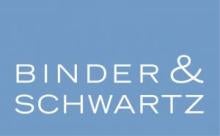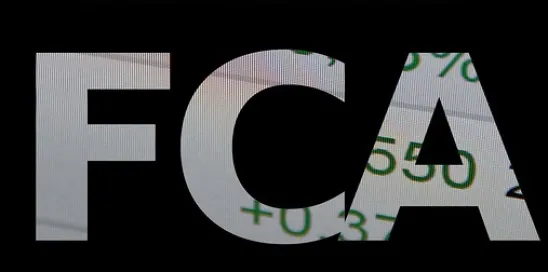2023 was another active year for the False Claims Act (FCA), marked by notable appellate decisions, emerging enforcement trends, and statutory amendments to state FCAs. We summarize the year’s most important developments for practitioners and government-facing businesses.
Developments in Caselaw
Supreme Court Holds That FCA Scienter Incorporates A Subjective Standard
The Supreme Court issued two consequential decisions on the False Claims Act this term. In the first, United States ex rel. Schutte v. SuperValu Co., 1 the Court held that objectively reasonable interpretations of ambiguous laws and regulations only provide a defense to the FCA’s scienter requirement if the defendant in fact interpreted the law or regulation that way during the relevant period. The Court held that the proper scienter inquiry is whether the defendant was “conscious of a substantial and unjustifiable risk” that their conduct was unlawful. 2 Previously, some courts (including the courts below in Schutte) had dismissed FCA claims based on an ambiguity in relevant statutory or regulatory provisions identified by a party’s attorneys, even if the party never actually believed that interpretation. Schutte precludes such a defense. That said, Schutte does require relators or the Government to allege facts to support an inference of actual knowledge of falsity, and some courts have granted motions to dismiss on that basis post-Schutte. 3
High Court Reaffirms Government’s Authority To Intervene And Dismiss Declined Actions, While Some Justices Raise Constitutional Questions
The Court also decided United States ex rel. Polansky v. Executive Health Resources, Inc., 4 which held that the Government may intervene in a declined action—i.e., where the Government declines to litigate the case at the outset under 31 U.S.C. § 3730(b)(4)(B)—for the purpose of dismissing it over the relator’s objection. The case essentially preserves the status quo, as courts widely recognized the authority of the Government to dismiss declined qui tams before Polansky. Polansky places two minor restrictions on the Government’s ability to dismiss declined actions. First, the Government has to intervene. 5 Second, the Government needs to articulate some rationale for dismissal to meet the standard of Rule 41(a), which the Court remarked that it will be able to do in “all but the most exceptional cases.” 6 More notably, however, three of the nine Justices (Justice Thomas in dissent and Justices Kavanaugh and Barrett in concurrence) signaled that they would entertain a challenge to the constitutionality of the qui tam mechanism under Article II. 7 Though the one court that has considered such arguments on the merits post-Polansky rejected them, 8 it remains likely that additional, similar challenges will be made.
Split In Authority Deepens On Causation In Kickback Cases
In FCA cases where the relator alleges a violation of the Anti-Kickback Statute (AKS), the payment of a kickback needs—at least in part—to have caused a submission of a false claim. That requirement flows from the statutory text of the AKS, which provides that claims “resulting from” AKS violations are “false or fraudulent claim[s]” for the purpose of the FCA. 9 But courts have not coalesced around a single standard for what it means for a false claim to “result from” a kickback. Before this year, the Third Circuit in United States ex rel. Greenfield v. Medco Health held that there needs to be “some link” between kickback and referral beyond temporal proximity. 10 On the other hand, the Eighth Circuit in United States ex rel. Cairns v. D.S. Medical, LLC, held that the kickback needs to be a but-for cause of the referral. 11 Earlier this year, the Sixth Circuit endorsed the Eighth Circuit’s interpretation of causation. The court reasoned that but-for causation is the “ordinary meaning” of “resulting from” and no other statutory language in the AKS or FCA justifies departure from a but-for standard. 12 But not every court has adopted the Sixth Circuit’s straightforward analysis.
In the District of Massachusetts, for example, two decisions issued this summer came out on opposite sides of the split. In both cases, United States v. Teva Pharmaceuticals USA, Inc., 13 and United States v. Regeneron Pharmaceuticals, Inc., 14 the Government alleged that the pharmaceutical companies were improperly paying copayment subsidies to patients for their drugs. Yet Teva adopted Greenfield’s “some link” standard, while Regeneron adopted the “but-for” standard of the Sixth and Eighth Circuits. The Teva court also certified an interlocutory appeal to the First Circuit to resolve the issue prior to trial, which remains pending. 15 FCA defendants in cases arising out of the AKS thus continue to face substantial uncertainty as to the applicable standard outside the Third, Sixth, and Eighth Circuits. That said, there is mounting skepticism of the Greenfield analysis, 16 and those defendants retain good arguments that the standard adopted by the Sixth and Eighth Circuits should apply.
Enforcement Trends
The also Government remained active in investigating and, in many cases, settling False Claims Act allegations. That enforcement activity included several large settlements, including a $377 million settlement with Booz Allen Hamilton arising out of its failure to comply with Federal Acquisition Regulation cost accounting standards. 17 Our review of this year’s activity revealed significant trends in both civil and criminal enforcement, which we briefly describe below.
Focus On Unsupported Coding In Medicare Advantage (Part C) Claims
Medicare recipients are increasingly turning to private insurers to manage the administration of their Medicare benefits: over half of Medicare enrollees now opt for managed care plans. 18 The Government announced several important enforcement actions focused on submissions to and the administration of Medicare Advantage plans.
On September 30, DOJ announced a $172 million settlement with Cigna due to an alleged scheme to submit unsupported Medicare coding to increase reimbursement rates. According to the press release, Cigna operated a “chart review” team that reviewed providers’ submitted materials and identified additional applicable diagnosis coding to include on requests for payment. The Government alleges that some of the coding Cigna added was not substantiated by the chart review. 19
Similarly, in October, the Government declined to prosecute insurer HealthSun for submitting diagnosis coding to CMS that increased applicable reimbursement rate of treatment without an actual underlying diagnosis by the treating physician. The declination was based on HealthSun’s voluntary self-disclosure of the conduct through the Criminal Division’s recently updated Corporate Enforcement and Voluntary Self-Disclosure Policy. 20 DOJ did, however, indict the company’s former Director of Medicare Risk Adjustment Analytics for conspiracy to commit healthcare fraud and several counts of wire fraud and major fraud against the Government in the Southern District of Florida. 21
In May, the United States Attorney’s Office for the Eastern District of Pennsylvania announced a settlement against a Philadelphia primary care practice based on the submission of allegedly unsupported Medicare diagnosis coding in Part C submissions. The press release asserts that the practice coded numerous claims with morbid obesity diagnoses when the patients lacked the required body-mass index for the diagnosis and diagnosed chronic obstructive pulmonary disease without appropriate substantiation. 22
Both managed care organizations and providers that submit claims to Medicare Advantage should review their claim coding practices to ensure that their claims accurately reflect the medical diagnoses of the treating physician, as well as the treatment provided.
DOJ Follows Through On Civil Cyber-Fraud Initiative
In 2021, DOJ announced the launch of its Civil Cyber-Fraud Initiative, 23 which was aimed at policing government contractors’ failures to adequately protect government information by meeting prescribed cybersecurity requirements. This year, the enforcement of that policy led the Government to alleged FCA violations based on implied or explicit certifications of compliance with cybersecurity regulations:
In September, the Government declined to intervene in a qui tam action against Pennsylvania State University alleging that Penn State falsely certified compliance with Defense Federal Acquisition Regulation Supplement 252.204-7012, which specifies controls required to safeguard defense-related information, during the length of its contract with the Defense Department. 24 However, the parties subsequently sought a 180 day stay of proceedings due to an ongoing government investigation, which was granted. 25 The application for the stay hinted that the Government may yet intervene in the action and file a superseding complaint. 26
DOJ also announced in September a $4 million settlement with Verizon Business Network Services LLC arising out of Verizon’s provision of internet services to federal agencies that was required to meet specific security standards. The Government’s press release, which specifically noted Verizon’s cooperation with the investigation, alleged that Verizon failed to implement “three required cybersecurity controls” in its provision of internet service, which were not individually specified. 27
Entities doing business with the Government should ensure that they are aware of all applicable cybersecurity laws and regulations governing that relationship and that they are meeting all such requirements.
Continued Crackdown On Telemedicine Fraud Schemes
Following OIG-HHS’s July 2022 Special Fraud Alert 28 regarding the recruitment of practitioners to prescribe treatment based on little to no patient interaction over telemedicine, DOJ announced several significant settlements involving that exact conduct. In many circumstances, the Government pursued criminal charges rather than civil FCA penalties alone.
In September, the United States Attorney’s Office for the District of Massachusetts announced a guilty plea to a conspiracy to commit health care fraud charge. The Government alleged that the defendant partnered with telemarketing companies to pay Medicare beneficiaries “on a per-order basis to generate orders for [durable medical equipment] and genetic testing,” and then found doctors willing to sign “prepopulated orders” based on telemedicine appointments that the doctors did not actually attend. 29
In June, as part of a “strategically coordinated” national enforcement action, DOJ announced action against several officers of a south Florida telemedicine company for an alleged $2 billion fraud involving the prescription of orthotic braces and other items to targeted Medicare recipients through cursory telemarketing appointments that were presented as in-person examinations. 30
Although enforcement in the telemedicine space to date has largely focused on obviously fraudulent conduct, practitioners should be aware that the Government may view overly short telemedicine appointments as insufficient to support diagnoses leading to claims for payment from the Government.
State False Claims Acts
Both Connecticut and New York made notable alterations to the scope of conduct covered by their state FCAs. Companies doing business with state governments should be aware that 32 states have their own FCAs, not all of which mirror the federal FCA.
Connecticut Expands FCA To Mirror Scope Of Federal Statute
Prior to this year, Connecticut’s False Claims Act covered only payments sought or received from a "stateadministered health or human services program" In June, however, Connecticut enacted a substantial revision to its state FCA, which seeks to mirror the scope and extent of the Federal FCA. 31 Those doing business with the state of Connecticut should conduct an FCA-focused compliance review of that business to avoid potential liability arising out of state law, and should also understand federal FCA jurisprudence, which is likely to have a significant influence on the new law’s interpretation.
New York Expands FCA To Cover Allow Tax-Related FCA Claims Against Non-Filers
New York is among the few states whose state FCAs cover tax-related claims. Prior to this year, though, the state and its municipalities could only assert tax-related claims against those who actually filed and whose filings contained false statements of fact. In May, New York amended its FCA to allow a cause of action against those who knowingly fail to file a New York tax return and pay New York taxes. 32 Companies doing business in New York should be aware that not filing required taxes in New York may potentially subject them to, among other things, the treble damages for which the FCA provides.
1 143 S. Ct. 1391 (2023).
2 Schutte, 143 S. Ct. at 1400-01.
3 See, e.g., United States ex rel. McSherry v. SLSCO, L.P., No. 18-CV-5981, 2023 WL 6050202,
at *4 (E.D.N.Y. Sept. 15, 2023).
4 143 S. Ct. 1720 (2023).
5 Id. at 1730.
6 Id. at 1734.
7 Id. at 1737 (Kavanaugh, J., concurring); id. at 1741-42 (Thomas, J., dissenting).
8 See United States ex rel. Wallace v. Exactech, Inc., No. 7:18-cv-01010, 2023 WL 8027309, at
*4-6 (N.D. Ala. Nov. 20, 2023).
9 See 42 U.S.C. § 1320a-7b(g).
10 United States ex rel. Greenfield v. Medco Health Sol’ns, 880 F.3d 89, 98-100 (3d Cir. 2018).
11 United States ex rel. Cairns v. D.S. Med., LLC, 42 F. 4th 828, 834-36 (8th Cir. 2022).
12 United States ex rel. Martin v. Hathaway, 63 F. 4th 1043, 1052-53 (6th Cir. 2023).
13 Civ. A. No. 20-11548, 2023 WL 4565105 (D. Mass. July 14, 2023).
14 Civ. A. No. 20-11217, 2023 WL 7016900 (D. Mass. Oct. 25, 2023)
15 See United States v. Teva Pharma USA, Inc., No. 23-1958 (1st Cir. 2023).
16 See, e.g., Regeneron, 2023 WL 7016900, at *11 (remarking that the Greenfield analysis is
“fraught with problems” and “disconnected from long-standing common-law principles of
causation”).
17 https://www.justice.gov/opa/pr/booz-allen-agrees-pay-37745-million-settle-false-claims-act-
allegations.
18 https://www.kff.org/policy-watch/half-of-all-eligible-medicare-beneficiaries-are-now-enrolled-
in-private-medicare-advantage-plans/.
19 https://www.justice.gov/opa/pr/cigna-group-pay-172-million-resolve-false-claims-act-
allegations.
20 See https://www.justice.gov/opa/speech/assistant-attorney-general-kenneth-polite-jr-delivers-
remarks-georgetown-university-law.
21 https://www.justice.gov/opa/pr/former-executive-medicare-advantage-organization-charged-
multimillion-dollar-medicare-fraud.
22 https://www.justice.gov/usao-edpa/pr/primary-care-physicians-pay-15-million-resolve-false-
claims-act-liability-submitting.
23 See https://www.justice.gov/opa/pr/deputy-attorney-general-lisa-o-monaco-announces-new-
civil-cyber-fraud-initiative.
24 See United States ex rel. Decker v. Penn. State Univ., Civ. A. No. 22-3895 (E.D. Pa. 2023).
25 Id. at ECF Nos. 24, 37.
26 Id. at ECF No. 24.
27 See https://www.justice.gov/opa/pr/cooperating-federal-contractor-resolves-liability-alleged-
false-claims-caused-failure-fully.
28 https://oig.hhs.gov/documents/root/1045/sfa-telefraud.pdf.
29 https://www.justice.gov/usao-ma/pr/owner-telemedicine-companies-pleads-guilty-44-million-
medicare-fraud-scheme.
30 https://www.justice.gov/opa/pr/national-enforcement-action-results-78-individuals-charged-
25b-health-care-fraud.
31 See Conn. Gen. Stat. §§ 4-274–4-289.
32 See N.Y. State Fin. Law § 189(4)(a).





 />i
/>i

